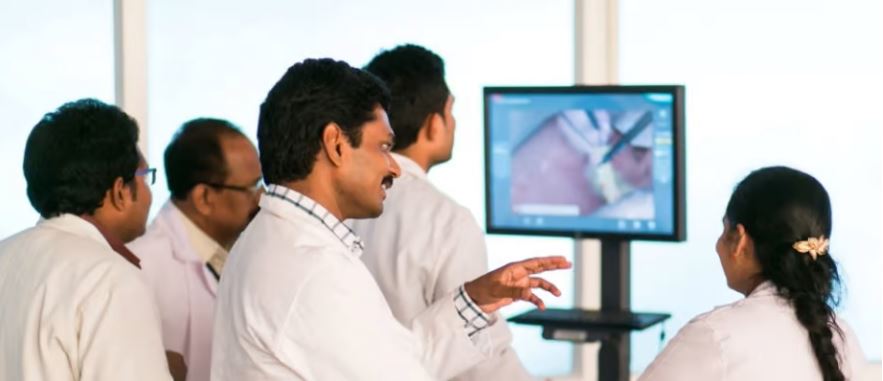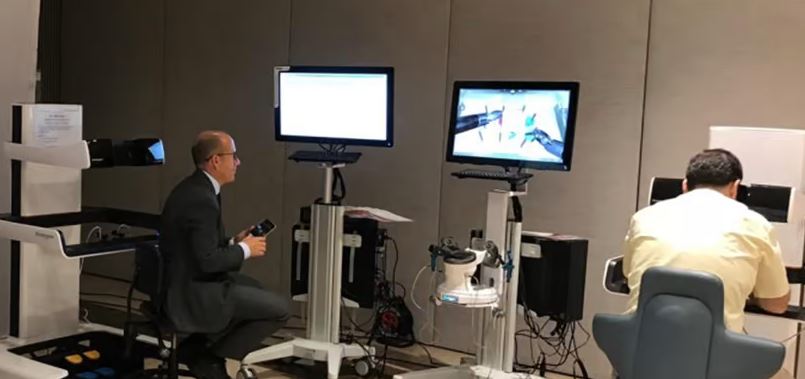公司规模
Large Corporate
地区
- Europe
国家
- United Kingdom
产品
- Alteryx
- Tableau
- SITS
技术栈
- SQL
- BI Analysis
实施规模
- Enterprise-wide Deployment
影响指标
- Productivity Improvements
- Digital Expertise
技术
- 分析与建模 - 数据即服务
适用行业
- 教育
适用功能
- 商业运营
用例
- 质量预测分析
- 补货预测
服务
- 数据科学服务
关于客户
第一所伯明翰设计学院由伯明翰艺术家协会于 1843 年创办,并于 1992 年获得大学地位。自那时起,该学院已发展成为一所蓬勃发展的机构,拥有来自世界各地的 24,000 名学生,并因其跨学科的研究而被公认为世界领先者。如今,该大学以其位于英国伯明翰的先进设施培养出英国最具就业能力的毕业生。提供这些服务的是四个学院,涵盖广泛的学科和专业。
挑战
伯明翰城市大学必须向 OfS(学生办公室,前身为 HEFCE)提交强制性年度申报表,以核实政府资金分配情况。规划和绩效部门必须汇总来自多个内部系统和外部来源的信息,以完成学生活动资金汇总申报。收集和准备来自多个来源的数据是一项重大、庞大且复杂的挑战;HESES 申报表的监管时间框架通常规定从 12 月 1 日的人口普查点开始需要 7 个工作日。改进自动化和基础流程对于确保效率和保持高水平的数据完整性变得越来越重要。与前几年相比,清晰准确地展示合法的变化至关重要,因为这可能会影响大学的核心资金拨款。
解决方案
为了满足该行业日益增长的数据驱动需求,该大学正在研究使用 Tableau 来全面改进其商业智能 (BI) 分析,这时它发现了 Alteryx。该团队从 SITS(大学的学生记录管理数据库)中提取当前报告年度的学生入学数据,并将其注入 Alteryx。然后,他们使用 Alteryx 将其与其他关键参考数据混合,包括与课程、模块、资金和费用类别相关的“静态”数据。这使他们可以分别处理本科生和研究生,以反映不同的 HESES 资金计算和报告要求。这些类别包括英国或欧盟资助学生、海外非资助学生、本科生或研究生等学习水平、学生是新生还是继续学习、资助组别等。此过程创建了当前的“人口普查”数据集,并向其中添加了对“延迟入学”的预测,例如来自四个学院的 12 月人口普查日期之后开始的入学人数。
运营影响
数量效益

Case Study missing?
Start adding your own!
Register with your work email and create a new case study profile for your business.
相关案例.

Case Study
IoT platform Enables Safety Solutions for U.S. School Districts
Designed to alert drivers when schoolchildren are present, especially in low-visibility conditions, school-zone flasher signals are typically updated manually at each school. The switching is based on the school calendar and manually changed when an unexpected early dismissal occurs, as in the case of a weather-event altering the normal schedule. The process to reprogram the flashers requires a significant effort by school district personnel to implement due to the large number of warning flashers installed across an entire school district.

Case Study
Revolutionizing Medical Training in India: GSL Smart Lab and the LAP Mentor
The GSL SMART Lab, a collective effort of the GSL College of Medicine and the GSL College of Nursing and Health Science, was facing a challenge in providing superior training to healthcare professionals. As clinical medicine was becoming more focused on patient safety and quality of care, the need for medical simulation to bridge the educational gap between the classroom and the clinical environment was becoming increasingly apparent. Dr. Sandeep Ganni, the director of the GSL SMART Lab, envisioned a world-class surgical and medical training center where physicians and healthcare professionals could learn skills through simulation training. He was looking for different simulators for different specialties to provide both basic and advanced simulation training. For laparoscopic surgery, he was interested in a high fidelity simulator that could provide basic surgical and suturing skills training for international accreditation as well as specific hands-on training in complex laparoscopic procedures for practicing physicians in India.

Case Study
Implementing Robotic Surgery Training Simulator for Enhanced Surgical Proficiency
Fundacio Puigvert, a leading European medical center specializing in Urology, Nephrology, and Andrology, faced a significant challenge in training its surgical residents. The institution recognized the need for a more standardized and comprehensive training curriculum, particularly in the area of robotic surgery. The challenge was underscored by two independent studies showing that less than 5% of residents in Italian and German residency programs could perform major or complex procedures by the end of their residency. The institution sought to establish a virtual reality simulation lab that would include endourological, laparoscopic, and robotic platforms. However, they needed a simulator that could replicate both the hardware and software of the robotic Da Vinci console used in the operating room, without being connected to the actual physical console. They also required a system that could provide both basic and advanced simulation training, and a metrics system to assess the proficiency of the trainees before they performed surgical procedures in the operating theater.

Case Study
Edinburgh Napier University streamlines long-distance learning with Cisco WebEX
• Geographically dispersed campus made in-person meetings costly and inconvenient.• Distance-learning programs in Malaysia, India, and China required dependable, user-friendly online tools to maximize interaction in collaborative workspaces.• Virtual learning environment required a separate sign-in process, resulting in a significant administrative burden for IT staff and limited adoption of collaboration technology.

Case Study
8x increased productivity with VKS
Before VKS, a teacher would spend a lot of time showing a group of 22 students how to build a set of stairs within a semester of 120 hours. Along with not leaving the teacher much time to provide one-on-one support for each student to properly learn carpentry, it also left a considerable amount of room for error. Key information would be misinterpreted or lost as the class was taught in the typical show-and-tell way.

Case Study
Scalable IoT Empowering GreenFlex's Sustainable Growth
GreenFlex, a company that supports sustainable development, decarbonization, and energy efficiency, faced several challenges in its quest to expand its business. The company needed to deploy a robust and sustainable IoT technology to support its growth. It was crucial for them to monitor and control devices at customer sites in a safe and reliable manner. They also needed to integrate devices across a range of communication protocols and gather and act on data to meet efficiency targets. GreenFlex had previously built IoT capabilities into its digital platform, GreenFlexIQ, to monitor and manage customer sites remotely. However, they soon realized that they needed a new platform to support their ambitions. They needed a platform that could scale to connect more devices for production management and make it easier for the operations team to manage devices in the field.



